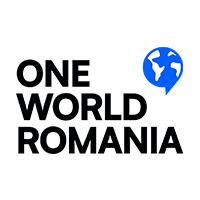
The Guest
Gość
Zvika Gregory Portnoy, Zuzanna Solakiewicz, Michał Bielawski (co-regizor)
2024, 78'
Poland, Qatar
AUDIO: Polish, English, Arabic
SUBTITLE: Romanian, English
SUBTITLE: Romanian, English
Poland, Qatar

In 2021, the border area between Poland and Belarus became a forbidden zone, three kilometers wide, where refugees found themselves brutally trapped. Maciek lives with his family on the Polish side of the border. He has taken in an exhausted Syrian refugee, the 27-year-old Alhyder. After he has regained his strength, Alhyder faces the big question: what now? Where can he go without putting either himself or Maciek in danger?
Cinematography
Zvika Gregory Portnoy
Zvika Gregory Portnoy
Editing
Zuzanna Solakiewicz
Zuzanna Solakiewicz
Screenplay
Zvika Gregory Portnoy, Zuzanna Solakiewicz
Zvika Gregory Portnoy, Zuzanna Solakiewicz
Production
Maria Krauss, Fatma Riahi, Robert Banasiak
Maria Krauss, Fatma Riahi, Robert Banasiak
Sound
Agata Chodyra
Agata Chodyra
Music
Michał Pepol
Michał Pepol
AUDIO: Polish, English, Arabic
SUBTITLE: Romanian, English
SUBTITLE: Romanian, English
Followed by Q&A with co-director Michał Bielawski and a discussion with Gabriela Leu (UNHCR)
Michał Bielawski

Michał Bielawski
For nearly two decades, he has worked in documentary and television filmmaking. In 2013, he received the Polish Film Institute Award and debuted with his feature documentary Mundial. The Highest Stakes. His creative documentary The Wind: A Documentary Thriller, produced with HBO Europe, premiered at Visions du Réel and returned from a global tour with numerous awards from top documentary festivals, including Dok Leipzig. The film was also nominated by the Polish Film Academy for the Eagles – Polish Film Awards in the Best Documentary category.
Online access to this film is limited to 150 views.
a film adopted by
































































































































































